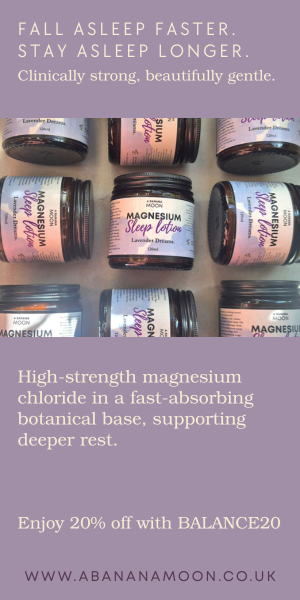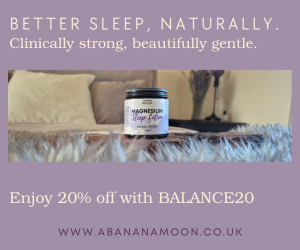Make Breathing Your Medicine

Every second of every day, our bodies perform vast numbers of vital operations to keep us alive, and somewhat miraculously, without us having to consciously give any instructions or make any decisions for this to happen. Our bodies are teeming with their own in-built medicine and are always at the ready to deal with any situation or change that has the potential to take us off-course. Breathing is just one such autonomic function, whose role in drawing in oxygen and expelling carbon dioxide to remove waste product from our bodies, is the very basis of all cell functions, and therefore critical to the proper functioning of every organ, tissue and body system.
Although breathing ‘happens’ without us having to think about it, we also have the ability to purposefully connect to our breath, and as such, both support it and harness it for therapeutic purposes. The medicinal power of breathing has long been used in various traditions of Eastern medicine, notably through meditative practices, to enhance health in both body and mind, and demonstrates how much we can do on a day-to-day basis to support our breathing and use it more effectively. So, give yourself a few minutes to relax and slow your breathing as you read through this article to see how the basic, yet powerful, act of breathing can enhance your health and wellbeing.
INTELLIGENT BREATHING
Sit comfortably in a chair. Take a deep gentle in-breath through your nose, sending the air deep into your abdomen, and slowly let the air out through your mouth. Repeat this deep, slow breathing, two or three times. Did you notice anything?
Just by doing a simple exercise like this, we can create some radical changes in both mind and body. As we relax and declutter our thinking, we let more positive and grounded feelings permeate. Physically, that deep breathing has enabled our diaphragm to descend, allowing our lungs to expand so that our blood vessels can better absorb the oxygen which will be taken to the heart. A deep breath can allow us to take in up to ten times more air than we do during regular respiration. Bringing consciousness to our breath in this way allows us to better connect body and mind, as the serene feeling we experience when we calm our breathing is a reflection of the slowing down in our heart rate and the stabilisation of our blood pressure.
The benefits of deep breathing go well beyond feeling well for a couple of minutes, however. Not only can deep abdominal breathing be used as a way to control intense fear, such as during a panic attack, the more we practise this form of breathing, the more often we will revert unconsciously to it, so that we become better at managing stressful situations in life. Every time we can go into that calm deep breathing, we are enhancing our cardio-vascular functions and supporting our immune system, while giving all processing, replenishing and cleansing activities in our bodies and minds a better chance to happen smoothly.
BREATHING’S ENERGETIC POWERHOUSE
According to acupuncture theory, our respiration is controlled by the lungs, which are said to open into the nose. However, it is the torso as a whole which is considered significant in relation to the energetic potential of breathing. Known as a ‘Sea of Qi’, (pronounced Chi) the chest area itself represents a formidable powerhouse of energy both physical and mental. Acupuncture points in the area are therefore used for both chronic and acute health problems, as well as preventatively to support good health, allowing our ‘Qi’ or energetic stores to be well stocked. No matter what demands are put on our bodies and minds, we will be able to respond with appropriate strength and vigour, whether it is an intellectually demanding task that requires mental clarity and agility, an emotionally challenging situation which we need to pull ourselves through to walk tall again, or when our body’s capacity is physically pushed to its limits, during a work-out, a competition or an illness.
As breathing connects our inner body to the outside world and represents a first line of defence, the lungs are very susceptible to damage, notably from pollutants, toxins, or pathogens. It is not surprising therefore that as humans we are highly vulnerable to upper respiratory infections, especially if our defences are already weakened. Sometimes our bodies will show strong evidence that our lungs are under attack or not working as they should, such as in the case of a cough, asthma, breathlessness, chest pains or in more severe cases, pneumonia. Due to the lungs’ connection with the upper respiratory system and the nose, symptoms such as loss of smell, hypersensitivity to odours, or unexplained nosebleeds, are typically considered manifestations of disharmonies relating to the lungs in Oriental Medicine. Other times, however, there may be more subtle and non-specific signs of imbalances, which a trained acupuncturist will be able to trace back to an impaired lung function. This could include tiredness, voice weakness, repetitive sighing, excessive or insufficient sweating, oedema, constipation, urinary retention, cold hands, poor immunity with a particular marked susceptibility to colds and flu, or skin problems.
Our energy can easily become stuck in the chest area as we have a tendency to hold onto our breath when we are under pressure or feeling stressed in some way. Even grief or thought patterns where we cling on to the past are, in Oriental Medicine, considered damaging to the lungs and can weaken breathing itself. Struggling lung function may therefore manifest emotionally in the form of depression, sadness, a sense that our emotions are somehow constrained, that we are struggling to let go or anxiety.
HOW TO BREATHE YOUR WAY TO WELLNESS
Breathing is necessary to life. As such, keeping our lungs in excellent condition is clearly crucial. Acupuncture provides a helpful first step or adjunct treatment to achieving good lung health through specific point combinations that free up the chest and facilitate physical and mental flow. The use of these points provides an immediate and palpable change in a patient, who will often describe a sensation of balance, lightness, calm and connection.
Outside of the acupuncture sessions, there are many healthy habits we can adopt to support our lungs and breathe well. If you are not sure where to start, here are some handy pointers:
- Work on your breath and strengthen your lungs: This is something that we can all practise on a day-to-day basis, and doing it allows deep cleansing and renewal, physically and mentally. Deep breathing can be both active and passive. Whether your preference is for more invigorating types of sport, aerobic workouts, or more gentle forms of exercise such as yoga, or qi gong, they are all beneficial, as they all encourage you to breathe deep, and provide perfect add-ons to your wellness routines. Having a good variability in our breathing capacity is also helpful, so consider a range of activities both active to restful as part of your health and fitness schedule.
- Open your airways: It is important to have a sense of being able to have a strong in-breath. Peppermint based products, such as oils that can be inhaled, or peppermint tea, made with dried or fresh leaves, can be helpful to ease any congestion and clear the build-up of mucus.
- Food choices: In Oriental Medicine, the lungs are associated with the autumn, and therefore foods that dominate at that time of year – such as mushrooms – or have a white colour, for example tofu or white tea, are considered beneficial to the health of the lungs, and can be combined with pungent foods and spices, such as ginger, to encourage the dispersion of ‘Qi’.
- Meditate: Meditation provides an extremely valuable tool to support the function of our lungs, by strengthening our ability to quieten the mind, focus on our breathing, and detach ourselves emotionally from negativity. Just like breathing itself, meditation is simply a process by which we allow ourselves to take in, and then let go. Meditation requires our full attention so creating a peaceful environment in which to meditate or using a guided meditation to help focus, are useful.
- Get your house in order: There may be aspects of your life that are emotionally holding you back, stifling your inspiration, or choking you in some way, so consider decluttering your home or getting your affairs in order. Creating that physical and mental space, can make us feel like we are breathing properly again and able to have clarity of thought.
Breathing is an empowering and freely available wellness tool, which can easily be worked on and used daily. Paying attention to our breathing is worth it, not only because there is an instant feel-good from doing it, but because it is a practice that allows us to tap into a potent medicine that helps us heal better and perform at our very best, whether physically or mentally.
Lisa Lee, Lic.Ac. PhD, is a fully qualified Five Element acupuncturist who works from her clinic on Harley Street. She treats patients looking for help with a wide range of health and wellbeing issues and has specialist interests in fertility, anxiety, and cancer support.












